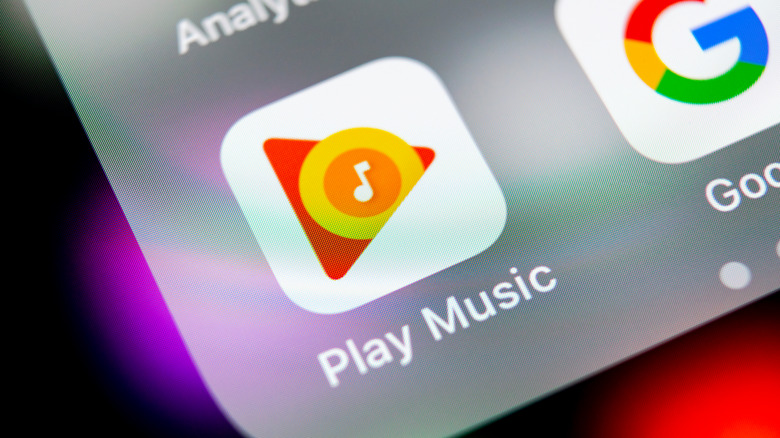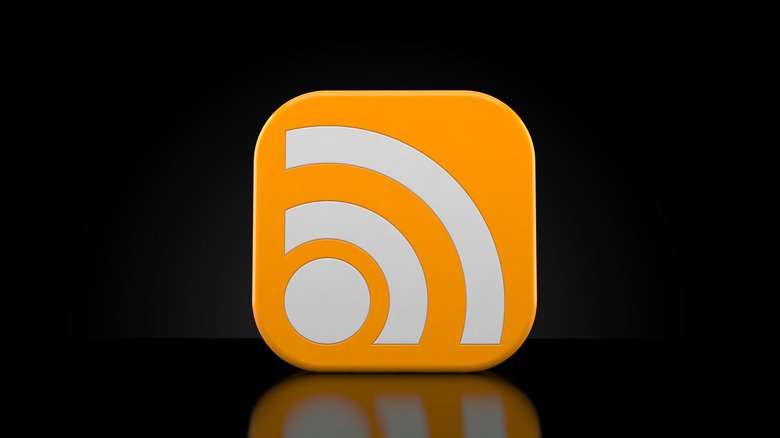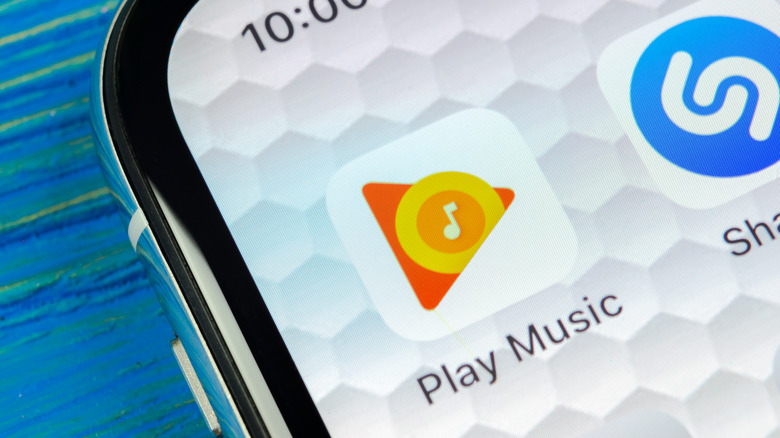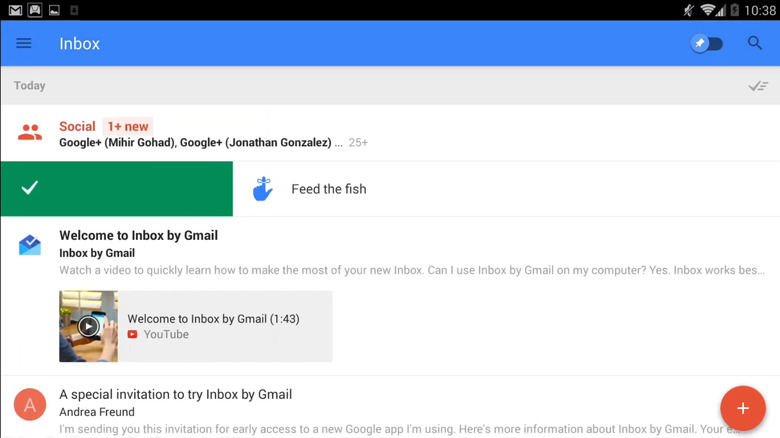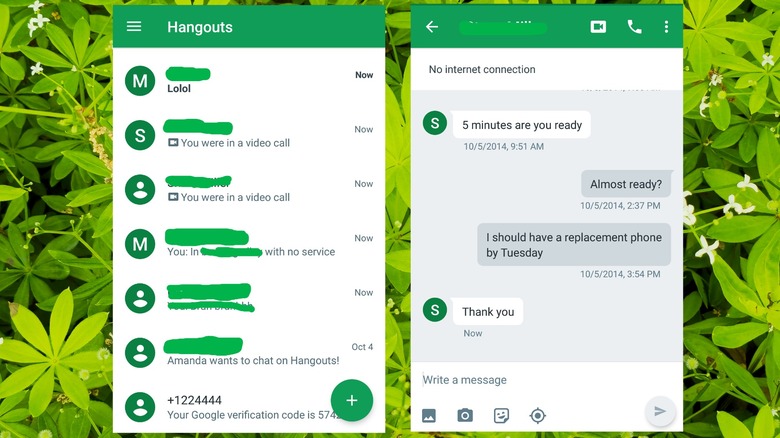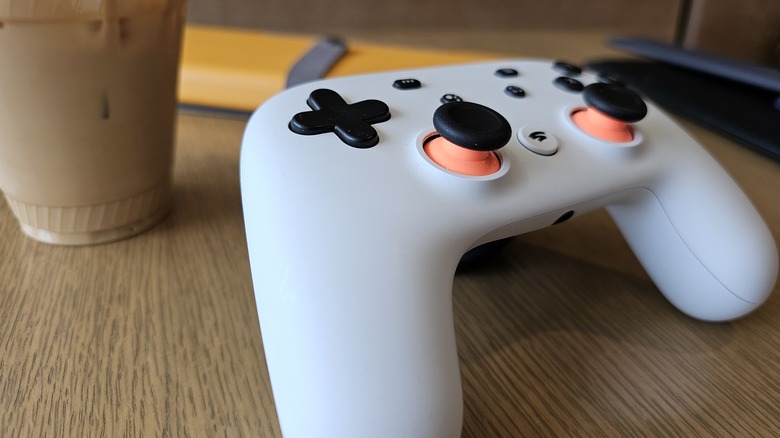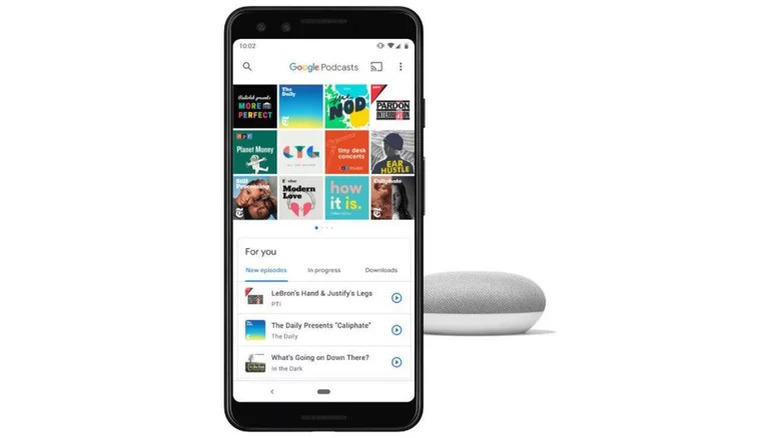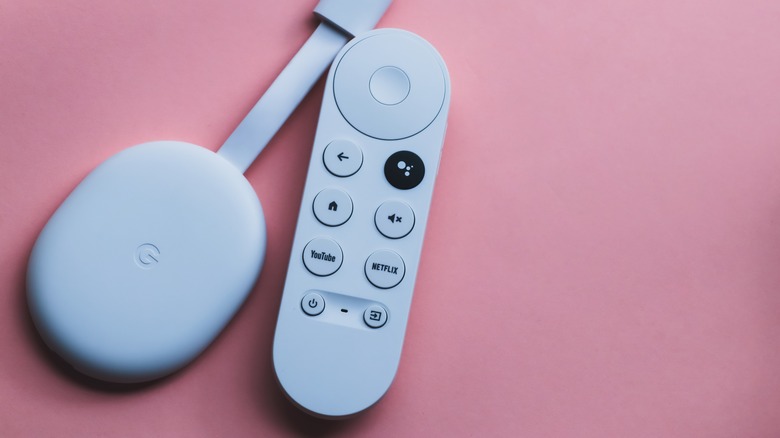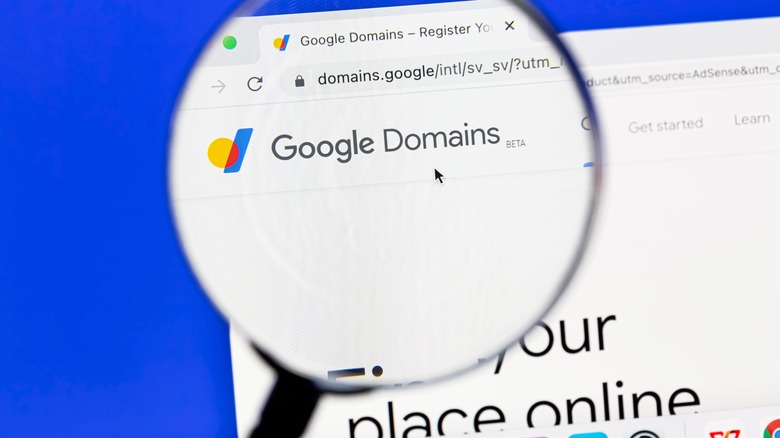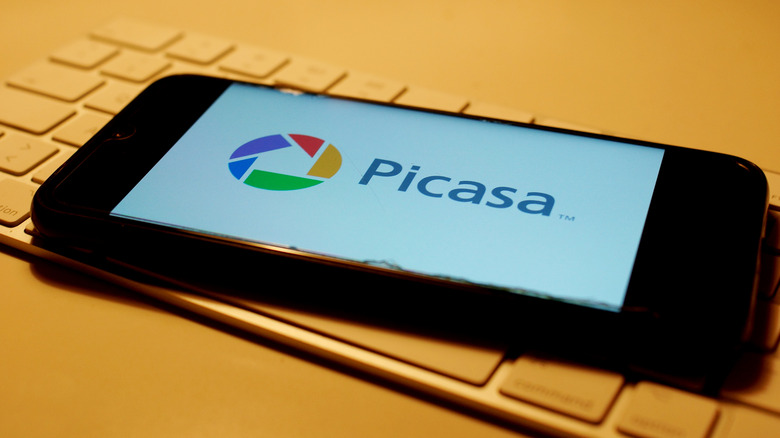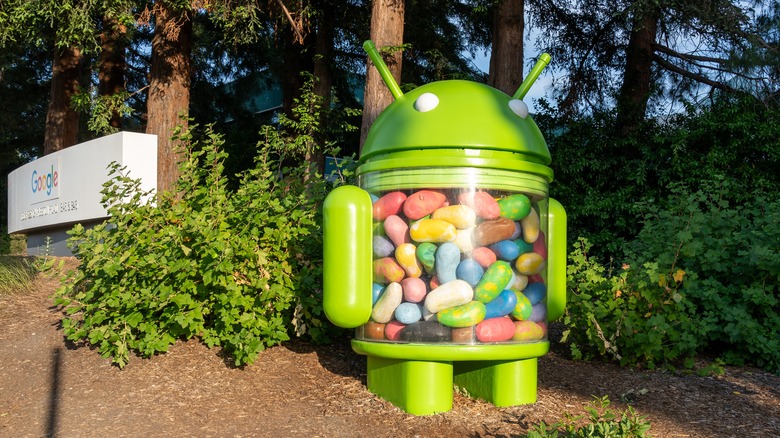10 Canceled Google Products That Were Actually Useful
"Don't be evil." That was the corporate slogan held by Google until 2018. However, while it made for a nice motto, it has increasingly become a phrase thrown back in Google's face with mocking tones by critics. In July 2024, a federal judge ruled that Google is a search and text ad monopoly, confirming legally what many people already knew. Google leverages its iron grip over the Internet to prevent legitimate competition from challenging its domination, and users are the ones who pay the price for that behavior.
One of the most frustrating ways Google's monopolies affect everyday users is in its callousness toward the products that aren't core to its business. Since Google makes its money almost exclusively from online advertising, it doesn't really need any of its other products to succeed. When they do, like Gmail or YouTube, they become yet another advertising delivery mechanism. When they don't, they're killed unceremoniously, leaving users out in the cold. To date, Google has killed a staggering 296 products, as tracked by the Killed by Google project. It's a graveyard of what-ifs, with oodles of terrific products sadly canceled before their time.
So, given Google's penchant for killing its darlings, it's worth examining some of those that had the most potential for growth, or which provided value to users regardless of the size of their user base. I ran some queries on social media and the people have spoken. Nearly 900 people responded to a Threads post asking which Google cancelations made them the maddest, and from there I pulled some of the most frequently cited products, along with a few deeper cuts.
Reader
Of the hundreds of responses to my Threads query, the most grieved over Google product by far was Google Reader, an RSS feed aggregator. To those who don't remember RSS, it was a protocol that allowed anyone publishing on the web, especially personal websites and blogs, to have subscribers who would get updates when new content was published. Users could then follow any RSS feed, creating a custom timeline of content from their favorite sources.
The closest paradigm on the modern web is subscribing to email newsletters, and it's no coincidence that Reader had an interface very close to that of Gmail. Reader was in many ways the defining tool of the so-called blog era. Google shut it down in 2013, claiming that smartphones were changing the way people read the news.
For those who used Reader, its loss was more profound. It signaled the death of a truly custom Internet experience curated by the user. Moreover, it was the last straw for their trust in Google. As one reply to my Threads post put it, "You're Google. You could have saved it. You chose to kill the one protocol that gave the user total control over their feed and allowed content creators to show up in anyone's feed without putting their content on a major platform." Others suggested that Google worsened the shape of the social web by deprecating Reader, leaving centralized platforms as the only options for users.
Indeed, in the post-RSS world, algorithmic feeds dominate our lives, claiming to show us what we didn't know we really wanted. But many users miss the feeling of true exploration that came with discovering a new, independently hosted website on your own rather than having generic content brought to them.
Google Play Music
I am Ahab and whoever at Google made the decision to kill Google Play Music in 2020 is my white whale. Other former users I've spoken with feel similarly. There are dozens of us. Dozens! The service began life in 2011, before streaming had become the primary mode of music consumption. Most beloved was the ability to upload your own music from your computer, which you could then stream alongside your cloud library of subscription access tracks, helping to bridge the gap in an era when users were transitioning to cloud services from locally stored music libraries.
It wasn't until 2013 that an a la carte streaming service called All Access was added to Play Music, letting users stream unlimited songs for under $10. Streaming the latest music alongside the gems I had collected during the so-called blog era was a truly wonderful experience. Music collections are intimate, personal treasures connected to the most impactful parts of our lives, which is perhaps why out of all Google's many canceled products, this one stung so deeply.
When the plug was finally pulled on Play Music, users were shunted over to YouTube Music, which many felt was a worse experience. Google offered a tool to transfer libraries, but a valuable trust had been breached. In my estimation, the shift was because Google thought the YouTube branding had more awareness, or that it had cut a better deal with the major record labels for YouTube streaming. Whatever the reason, many users jumped ship to greener pastures — in other words, to Spotify — rather than suffer the indignity of YouTube Music.
Inbox
Google helped to democratize email with Gmail. The extremely popular free email service was so good from the get-go that people famously thought Gmail was an April Fools prank when it was first announced. However, as email became the de-facto mode of professional communication, it grew hard to manage over time. At least some readers (and this writer) have tens of thousands of unread emails clogging their Gmail accounts like arterial plaque.
Enter Inbox, Google's attempt to radically reimagine Gmail. Inbox was meant to use Google's powerful algorithmic prowess to make sure the most important messages were pushed to the top while bundling emails about the same topic. However, most impressive of all was its user interface, which prioritized workflow. You never had to travel to siloed pages, clicking into an email and back to your inbox, or navigating across tabs of categories. Instead, everything opened in-line, so you could move on quickly from email to email.
Then, only four years after its initial release, Inbox was sent to the great email server in the sky. While it never gained a critical mass of users, it had its stalwarts. However, unlike some other Google products on this list that threw the baby out with the bathwater upon their demise, the search giant didn't let all of Inbox's innovations go to waste. In the wake of its cancelation, some mild improvements came to Gmail, including the addition of the Snooze button to get reminders about messages you don't have time to deal with.
When it launched, the presumption held by many users was that Inbox would ultimately become the default Gmail experience once Google had ironed out any kinks. Disappointingly, Gmail was left mostly unchanged after its cancelation.
Hangouts
Google's haphazard messaging strategy has always seemed, ironically, like the product of bad internal communication at the company. However, back when Hangouts dropped in 2013, it seemed like they were finally getting (cue the snare roll) on message. Anecdotally, non-techies I knew were starting to use it, which to me signaled that Google had hit a home run, and its ability to bring SMS and chat under one roof was extremely convenient. Fast forward to 2022 and it joined GChat, Google Talk, Allo, Duo, and more in the graveyard of Google messaging platforms.
More perplexing than the constant cancelation of messaging apps is Google's refusal to keep its branding intact. The Hangouts name was put to rest along with the app itself. Google's primary messaging apps today are the generically named Google Messages, which handles SMS and RCS, and Google Meet, which handles Zoom-style video calls. Where Hangouts was a centralized hub, everything is now far more siloed.
Stadia
Stadia was Google's online games streaming service that came with its own custom controller. The Mountain View giant made a massive deal out of Stadia at its 2019 launch, only to put it out of its misery not long after its third birthday. Google claimed it ended the service because too few users signed up. SlashGear's own Eric Abent called it in advance, writing that people shouldn't sign up for a brand new Google service, especially one that hosts your games library, due to the high likelihood of its cancelation. Even so, it was extremely useful while it lasted, especially to people who couldn't afford a console or gaming PC.
While writing this article, my partner mentioned that they had been a Stadia customer. They still have the controller, so I excitedly took it for a spin with some games in my Steam library. I usually play with a PlayStation DualSense controller for its advanced haptics, and the Stadia hardware feels surprisingly robust in comparison, if still below Sony's sticks. Of course, Google Stadia was going to live or die based on its ability to deliver quality game streaming, and that's where it got mixed reception. While my partner claims to have played "The Elder Scrolls Online" without issue, people on social media had experiences ranging from stellar to poor.
When Google canceled Stadia in 2023, they did their best to mollify customers, refunding not only the cost of any games and DLC, but even the cost of the hardware itself. Stadia customers were left with no games library and a free controller.
Podcasts
Google Podcasts, perplexingly, perished at the height of the audio medium's popularity. Launched in 2018, it was axed this year in favor of podcasts on YouTube Music. Of all Google's filicides, this one makes marginally more sense than some others on this list. YouTube is already a very popular destination for podcasts, and some podcasts only publish on YouTube, so having two platforms was likely a little confusing to both podcasters and listeners. Still, not everyone wants to wade through mountains of YouTube content to find their favorite podcasts, and a standalone app devoted to audio was nice to have alongside the video-centric YouTube.
Ultimately, even though its death streamlined Google's podcast offerings, it's not as though podcasts couldn't have been distributed to both YouTube and Google Podcasts, leaving consumers to choose which app they preferred listening on. It's also not lost on anyone familiar with how YouTube works that Google can pump more ads into podcasts distributed there. Podcast distribution can be much more complicated than you'd assume at the best of times, so it's impossible to say what, precisely, precipitated Podcasts' puzzling purge from Google's roster without inside information.
Chromecast
Before you panic too much, the Chromecast protocol isn't going away. However, Google did kill the hardware products bearing its moniker at the beginning of August, 2024. When Chromecast first launched in 2013, it aimed to streamline the process of putting web-hosted content on your television. Smart TVs weren't yet ubiquitous, so streaming from Netflix, YouTube, or what have you required a set top box or lots of fiddling with HDMI cables. With the original Chromecast dongle, you could "cast" content from your phone.
Soon, the protocol was made open to developers, and has become a widespread feature on streaming apps. Additionally, it is built into Chrome, letting users cast tabs or video feeds to other screens, and Chromecast enabled devices can be added to Google Home. I almost never queue up a TV show or movie using clunky smart TV apps anymore, preferring instead to cast from my phone or use my voice to make my Nest speaker do the work.
Chromecast hardware has continued to be produced. Chromecast with Google TV has been a great way of accessing not only Chromecast but the fantastic Google TV operating system. However, with that OS now available on TVs from many popular manufacturers, Google seems less interested in selling it as a cheap dongle. Confirmation of Chromecast's death came at the launch event for the Google TV Streamer, a more expensive $99 set top box. That device has better specs that will give the resource hungry Google TV more breathing room, but it's disappointing that those on a budget won't have access to cheap Chromecast devices anymore.
Domains
Google's domain licensing service made sense for a company with so much cloud space that even Apple relies on it. Nevertheless, that service shuttered in June, 2023 after operating for eight years and Google Domains' assets were sold off Squarespace. Users impacted by the change at least didn't lose their websites but were now at the mercy of a company they didn't choose to be in business with. Even weirder, Domains hadn't been given that much time to shine — it only came out of beta in 2022. People who used it told me they found it useful because of its no-nonsense approach compared to other domain hosting services.
The sale to Squarespace was for a reported $180 million, which is an ungodly amount of money by the standards of normal people but still peanuts to Google. It's safe to say the business wasn't exactly raking in cash. Using Google's cloud infrastructure to support a bunch of mom-and-pop websites might have been the sort of project that interested the search engine giant in its pre-Alphabet days, but modern Google appears thoroughly uninterested in continuing support for any product that doesn't immediately enlarge the bottom line, or at least support a broader market strategy.
Picasa
While Google Picasa has faded from public consciousness since its cancelation, those who still relied on it remain irritated by its loss. The image organizer and editor was acquired from Lifescape in 2004 and marked Google's first major foray into that space. In early 2016, the service was shut down as the company pivoted to Google Photos, a photo storage solution that now functions as the hub for many of the company's AI photography features.
Google Photos is both popular and well liked, but it doesn't have a desktop client like Picasa did and requires an internet connection for the majority of its features. Further, as SlashGear's Chris Davies pointed out in an article detailing the shift from Picasa to Google Photos, those who relied on Picasa would not get their tags, captions, or comments transferred to the newer service.
Picasa's demise is perhaps the clearest example of what might be termed the Google treadmill, a process in which the company devours its own products. Since generating a new product is one of the clearest routes to notoriety and promotions within Google, and because employees have the freedom to spin out their own ideas, new products get released to the public haphazardly. However, rather than developing them further, they're left to the wayside. Eventually, a competing product is later created within Google, and inevitably the newcomer supplants its elder.
Google Now
Before Google Assistant, there was Google Now. Announced in 2012 with Android 4.1 Jelly Bean, the Now page sat in the Google app on smartphones and offered predictive information and updates with a card style interface. These updates included things like telling you when you needed to leave for an upcoming calendar event, scores for your favorite sports team, and so forth. Of course, it could also pull information from Gmail and other Google services for things like package and flight tracking. Additionally, natural language voice queries were introduced to give Apple's Siri a run for its money and showcase the power of Google's Knowledge Graph.
In many ways, Google Now offered functionality that the company has failed to replicate since. Its ability to learn a user's schedule and offer information before being asked was downright uncanny, and I recall it offering me cards based on information I have no idea how it attained. While many functions of Google Now persist elsewhere, Google has never again flexed its ability to predict my future with such astounding accuracy, at least not in any consumer facing applications.
Only a few things are certain in life. Among them are taxes, death, and canceled Google products. 296 cancelations later, Google's callous product strategy has led to untold numbers of frustrated users and its antics have invited the prospect of government intervention. In the face of a possible antitrust breakup that would rock the tech industry to its core, Google faces a steep uphill battle if it wants to regain the trust it was once granted. Until then, building your digital life around Google products is like trusting Lucy not to pull the football away from Charlie Brown — setting yourself up for disappointment.
